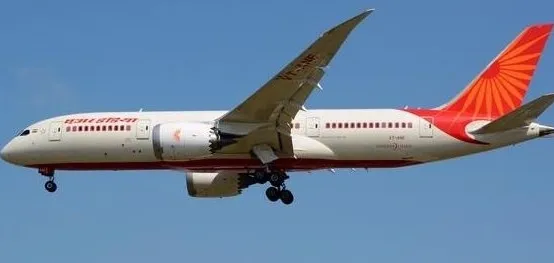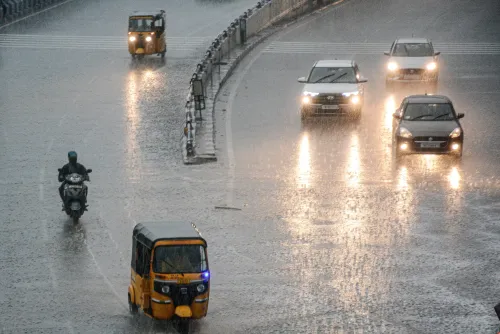Did DGCA Clear Air India’s Boeing 787 Fleet After Inspection?

Synopsis
Key Takeaways
- No major safety concerns found in Boeing 787 fleet inspection.
- 24 out of 33 aircraft have completed necessary checks.
- High-level discussions held to enhance operational robustness.
- Recommendations made for better internal coordination and passenger communication.
- Focus on real-time defect reporting for safety improvements.
New Delhi, June 17 (NationPress) Following concerns raised about maintenance issues with Air India, the Directorate General of Civil Aviation (DGCA) announced on Tuesday that its recent inspection of the airline's Boeing 787 fleet "did not uncover any significant safety issues".
The aviation authority confirmed that the aircraft and their associated maintenance systems were compliant with current safety regulations.
Among the 33 Boeing 787-8/9 aircraft, four are in the midst of major checks at various maintenance, repair, and operations (MRO) facilities.
"As of 1500 hrs on 17 June 2025, a total of 24 aircraft have successfully passed the necessary checks. Two additional aircraft are expected to be completed today, with another scheduled for tomorrow. The remaining six include two aircraft that are currently AOG in Delhi," the DGCA stated.
Inspections on these two aircraft will occur after they are declared serviceable and before their return to operational status. The remaining four aircraft undergoing MRO will also complete the mandated checks before being released from their respective maintenance hangars, the aviation regulator noted.
The DGCA convened a high-level meeting with senior officials from Air India and Air India Express, who are operating over 1,000 flights daily across both domestic and international routes.
This meeting aimed to assess the operational robustness of the airlines and to ensure ongoing compliance with safety and passenger service standards.
The DGCA recommended that the airline enhance coordination among engineering, operations, and ground handling units, ensuring sufficient spare parts availability to prevent passenger delays from such issues, and adhere strictly to regulations.
The impact of recent airspace closures, particularly over Iranian airspace, was also examined. These closures have resulted in flight diversions, delays, and cancellations. Operators were instructed to maintain timely communication with passengers and crew while adopting alternative routing strategies to minimize disruptions.
"Operators were reminded of their responsibilities under the relevant Civil Aviation Requirements Section 3 Series M Part IV and V, to inform passengers well in advance regarding any delays or cancellations. Effective passenger facilitation and timely information dissemination through all channels were emphasized," stated the DGCA.
The regulator has suggested implementing a more organized and real-time defect reporting system to ensure that operational and safety-critical departments receive timely updates. This move is expected to improve overall decision-making and reduce subsequent disruptions.









